

Plural of Hypothesis
What is the plural of hypothesis.
The Quick Answer
Are You Good at Plurals?
The standard rules for forming the plurals, why is there confusion over the plural of hypothesis.

This page was written by Craig Shrives .
You might also like...
Help us improve....

Was something wrong with this page?

Use #gm to find us quicker .

Create a QR code for this, or any, page.
mailing list
grammar forum
teachers' zone
Confirmatory test.
expand to full page
show as slides
download as .doc
print as handout
send as homework
display QR code
Grammarflex

What’s the Plural of Hypothesis?
- November 19, 2022
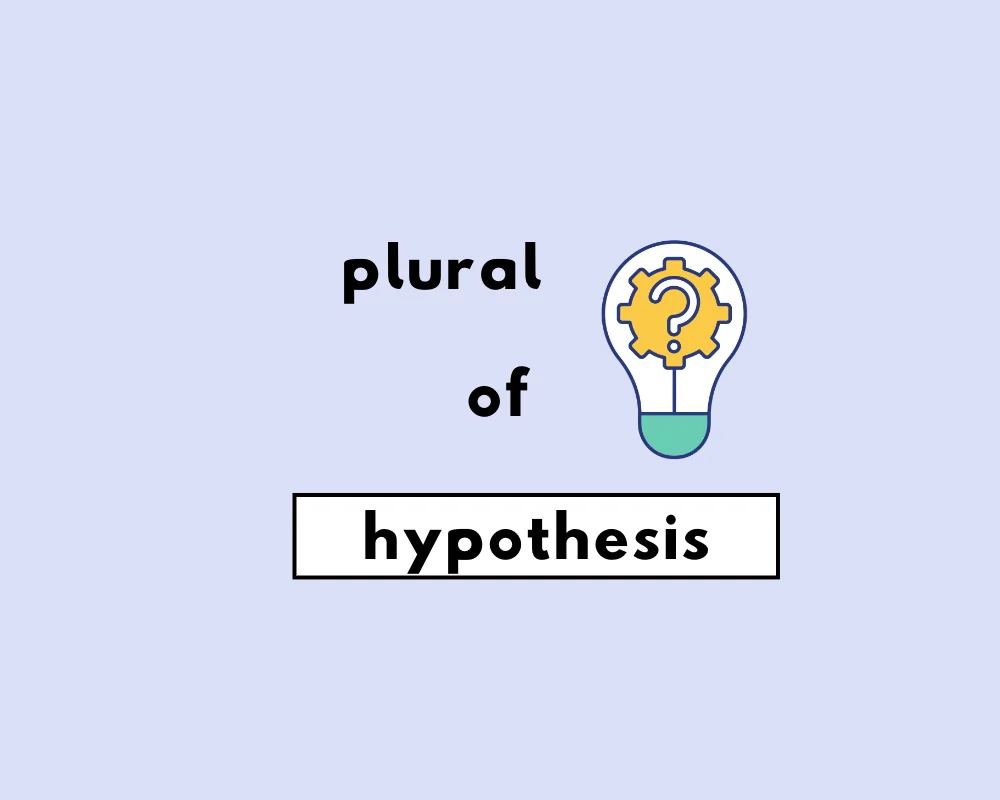
The plural of “hypothesis”
- The plural of hypothesis is hypotheses (sounds like hi-paw-thuh-sea s).
- Hypotheses is the only recognized plural of hypothesis .
What’s with the word hypothesis , and why does it behave the way it does from its singular to plural form? Keep reading.

What’s the meaning of hypothesis?
Hypothesis comes from the Greek word of the same spelling, hypothesis , meaning, “base, groundwork, foundation”. Hypothesis is made up of the Greek root words, hypo + thesis : “ hypo ” meaning “under” or “placing under”; “ thesis “, meaning “a placing, proposition”, (from Etymonline ).
So, based on the noun’s construction, hypothesis means to put or set forward a thesis or proposal to be subject to further investigating. According to Wikipedia , hypotheses are:
Tentative conjectures explaining an observation, phenomenon or scientific problem that can be tested by further observation, investigation and/or experimentation. Wikipedia on the word hypothesis.
Why is “hypotheses” plural for “hypothesis”?
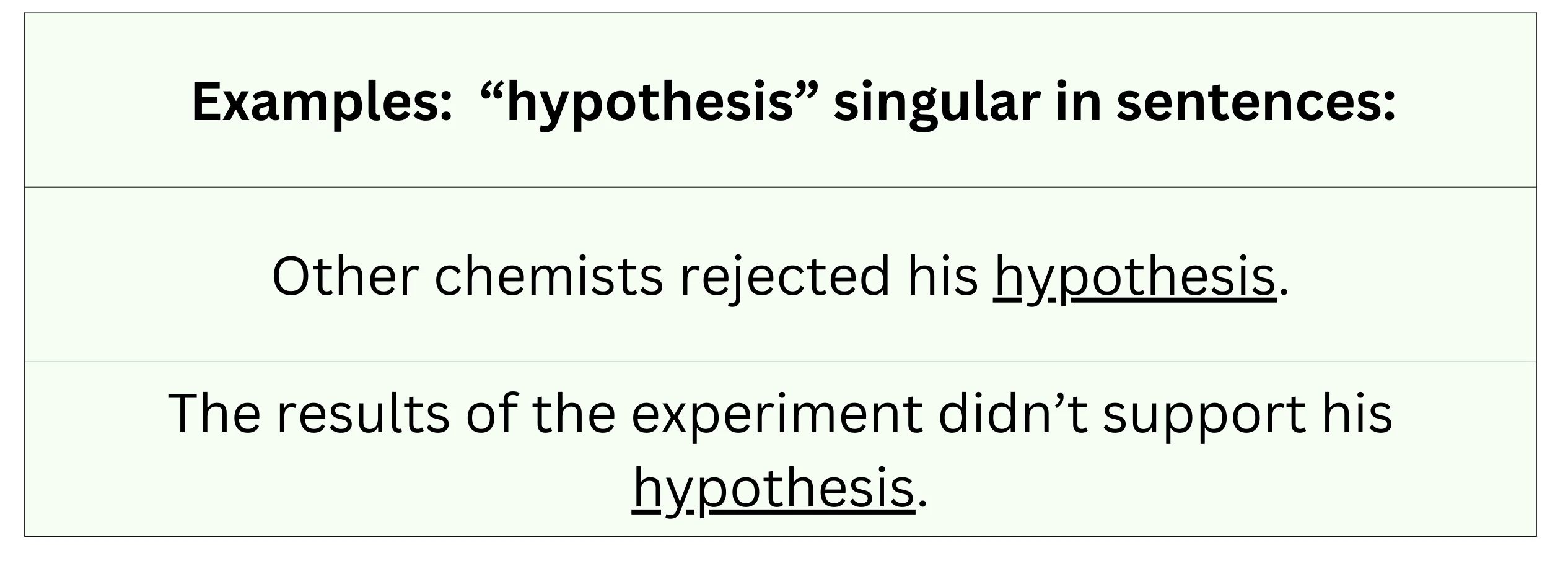
Lots of people confuse the plural of hypothesis , and it’s not tough to see why: hypothesis is an irregular plural noun form that omits the -s/-es of regular plural nouns . Apart from this, the way hypothesis modifies from singular to plural effectively changes the spelling and pronunciation of the word by substituting the -sis as a singular to – ses plural.
Most nouns add an -s/-es to denote plural. Hypothesis , and similar sounding nouns such as crisis , thesis , oasis , nemesis , diagnosis , analysis and so on, all change to -ses in their plural forms.
Nouns that end in “sis”
Each of these irregular plural nouns have another thing in common: they’re all Greek words that use Greek suffixes. So, in case you didn’t know, we all speak a bit of Greek.
Examples of “hypothesis” (singular) in sentences
Other chemists rejected his hypothesis .
What we need is a general hypothesis to explain merger waves.
Their hypothesis is that watching excessive amounts of television reduces a person’s ability to concentrate.
The results of the experiment did not support his hypothesis .
She wrote something to summarize her hypothesis .
Examples of “hypotheses” (plural) in sentences
It will be evident that no direct record of this evolution can be expected, and recourse must be had to hypotheses founded on the indirect evidence available.
The hypotheses which carried it back to the early years of the Christian era have been wholly abandoned.
Various hypotheses have been put forward to explain this increase.
In the above work we have a combination of the redaction and sources hypotheses .
Such hypotheses attend to Aristotle’s philosophy to the neglect of his life.
Synonyms of “hypothesis”
- supposition
- proposition
- explanation
- interpretation
Read about other irregular plurals
- What’s the plural of bison?
- What’s the plural of moose?
- What’s the plural of sheep?
- What’s the plural of ox?
- What’s the plural of cactus?
- What’s the plural of crisis?
Origin of “hypothesis”
From etymonline:
1590s, “a particular statement;” 1650s, “a proposition, assumed and taken for granted, used as a premise,” from French hypothese and directly from Late Latin hypothesis , from Greek hypothesis .
- Wikipedia hypothesis.
- Synonyms for hypothesis.
- Hypotheses sentence examples.
- Origin of hypothesis.
Recent Posts

Is it Nerve-Racking, Nerve-Wrecking or Nerve-Wracking?
Which is correct: nerve-wracking or nerve-racking? To describe something as extremely irritating, annoying, or trying; (as in, a nerve-racking day; or a nerve-racking noise), we

“Beck and Call” or “Beckon Call”? Which is Correct?
Meaning of ‘beck and call’ ‘To be at someone’s beck and call‘ is an idiomatic expression that describes being immediately available, or ready to be

What’s the Meaning of the Word “Connotation”?
Ever catch bad vibes from a text? Any feeling or internal response you have from the actual words used to is its connotation; which perhaps

What’s the Difference Between Ambiguous & Ambivalent?
Are ambiguous and ambivalent the same? Something ambiguous (an adjective) is unclear, vague and open to different interpretations. To be ambivalent (also an adjective) means

When to Use Have or Had? (Explained with Examples)
When should you use “have” or “had”? When is it correct to use have, has, or had? Phrased differently, what’s the past tense of have?

What’s the Past Participle? (Explanation & Usage)
The past participle is a form of a verb that can appear as an adjective, or be used to form specific tenses and the passive

Emigrate vs. Immigrate (Meaning + Examples)
Meaning of emigrate vs. immigrate To immigrate is the verb form of the noun immigrant; referring to someone that’s moved away from their birth country

Recurring vs. Reoccurring (Correct Usage, + Examples)
Did you have a recurring or reoccurring dream? If you’re finding the difference between these two words befuddling, then this post is for you. How

What’s the Difference Between Nevertheless vs. Nonetheless?
Nevertheless vs. nonetheless Nevertheless and nonetheless are synonyms that both belong to the same part of speech; i.e, they’re compound adverbs that express contrast. There
- Cambridge Dictionary +Plus
Meaning of hypotheses in English
Examples of hypotheses.

Word of the Day
Your browser doesn't support HTML5 audio
a type of radiation that can go through many solid substances, allowing hidden objects such as bones and organs in the body to be photographed

It’s written in the stars: talking about things that might happen in the future

Learn more with +Plus
- Recent and Recommended {{#preferredDictionaries}} {{name}} {{/preferredDictionaries}}
- Definitions Clear explanations of natural written and spoken English English Learner’s Dictionary Essential British English Essential American English
- Grammar and thesaurus Usage explanations of natural written and spoken English Grammar Thesaurus
- Pronunciation British and American pronunciations with audio English Pronunciation
- English–Chinese (Simplified) Chinese (Simplified)–English
- English–Chinese (Traditional) Chinese (Traditional)–English
- English–Dutch Dutch–English
- English–French French–English
- English–German German–English
- English–Indonesian Indonesian–English
- English–Italian Italian–English
- English–Japanese Japanese–English
- English–Norwegian Norwegian–English
- English–Polish Polish–English
- English–Portuguese Portuguese–English
- English–Spanish Spanish–English
- English–Swedish Swedish–English
- Dictionary +Plus Word Lists
- All translations
To add hypotheses to a word list please sign up or log in.
Add hypotheses to one of your lists below, or create a new one.
{{message}}
Something went wrong.
There was a problem sending your report.
bottom_desktop desktop:[300x250]

The Plural of Hypothesis: Here’s What It Is and How to Use It

Ever get stuck wondering what the plural form of hypothesis is in English? Perfect! This article will tell you just that plus give more facts about the word hypothesis, synonyms like a thesaurus, examples, and the history of the word. You will no doubt be an expert on all things surrounding the word hypothesis by the end of this article.
Your writing, at its best
Compose bold, clear, mistake-free, writing with Grammarly's AI-powered writing assistant

What Is The Definition Of Hypothesis
As found in the Meriam Webster Dictionary
- An assumption or concession made for the sake of argument
- an interpretation of a practical situation or condition taken as the ground for action
- a tentative assumption made in order to draw out and test its logical or empirical consequences
- the antecedent clause of a conditional statement
As found in the Cambridge Dictionary
- an idea or explanation for something that is based on known facts but has not yet been proved: several hypotheses for global warming have been suggested.
In “The Origin of Hypothesis” it is phrased as a ‘scientific guess’. In the context of science, a hypothesis is a placeholder for a theory until it is proven by science to be accurate.
A scientific hypothesis sed to explain something occurring in our universe that currently does not fit into our current available scientific theories. Scientific hypotheses also include null hypothesis, working hypothesis, and alternative hypothesis.

History and Origin of The Word
From the Greek hypotithenai to put under, suppose, from hypo- + tithenai to put. The first use of the word hypothesis can be traced back to 1596. Issac Newton actually rejected the hypothesis, he said “Hypotheses non fingo” which translates to “I Frame no hypotheses”. This was back in 1721 in Issac Newton’s book “Opticks, or A Treatise of the Reflections, Refractions, Inflections, and Colours of Light”
What Is More Than One Hypothesis Called?
The plural form of the hypothesis is hypotheses. This is the only way in the English language to make hypothesis plural. Because of the Greek origin, the rule of making a noun that ends in “is” to change it to “es.”
- Assumption – Something taken for granted
- Postulate- suggest or assume the existence, fact, or truth of (something) as a basis for reasoning, discussion, or belief
- Rationale – Logic for belief, action
- Previous observations- things that were seen or experienced in the past
- Supposition – guess, belief
- Theorem – explanation based on hypothesis and experiments done by experimenters using the scientific method
- Thesis – belief, assumption to be tested
- Conjecture – speculation, assumption
- Conclusion – end
- Tentative Explanation – clarification; reason
- Guess – belief, speculation
- Interpretation – understanding
- Premise – hypothesis, argument
What Is The Difference Between Hypothesis and Theory?
Since we now know that a hypothesis is a guess or assumption, how is that different from a theory? The definition of a theory is “a supposition or system of ideas intended to explain something, especially one based on general principles independent of the thing to be explained”.
Although we might think of a theory as something that has not been 100% proven, its definition in the application of science is something that has been tested as an explanation for things occurring. It is still an explanation that is thought of as true until proven otherwise, the difference here is that a hypothesis is thought to explain something not yet tested and could also be thought of as an unproved theory or suggested explanation.
Follow these examples to see the difference in action:
- Fact: “The clouds are dark outside.”
- Hypothesis: “It might storm today.”
- Theory: “Rain clouds are dark because of their particulate density. The denser the water droplets are in the cloud the more light will be scattered, which will lead to a darker appearance.”
- Fact: “Light roast coffee has more caffeine than dark roast coffee”
- Hypothesis: “I should drink a cup of light roast coffee if I want more caffeine”
- Theory: “During the roasting process caffeine is slowly burned off, therefore it is true that light roast coffee has more caffeine. You should however choose dark roast if you want more caffeine per cup because although per bean light roast has more caffeine, per gram of coffee dark roast contains more caffeine. This is because you have to consider the percent of weight loss that occurs with roasting a coffee to a dark level, which is higher than the percent of caffeine lost, therefore you have more caffeine per gram in dark roast over light roast, only by a minuscule amount.”
What Is The Difference Between An Idea and Hypothesis?
Since a hypothesis is an idea that can be tested, here are some examples of what is just an idea and can’t be tested followed by a similar idea that can be tested and is a hypothesis.
- Idea: Biden would be a better president vs Trump – Can not be tested since we have no data.
- Hypothesis: Obama did a better job at fixing unemployment vs Bush – can be tested by looking at the data.
- Idea: I could have been the best disc golfer if I started playing when I was a kid – Impossible to test
- Hypothesis: Paul McBeth probably hit more circle 2 putts on tour last year than Ricky Wysocki. – Can be proven by looking at the data for all their putts on the PDGA tour last year.
Example Sentences In Context
The following are examples of hypothesis in context:
“We came up with the assumptions and then narrowed them down to one hypothesis for each category.” – Forbes
“The notion of hypothesis testing has recently invaded the practice of entrepreneurship as a tool to construct of new ventures” – Forbes
“There’s not one unifying hypothesis as to why, but there’s probably five to 20 different things that have contributed to it.” – USA Today
“Most thinkers or hypothesists of any degree of sobriety allow, that an hypothesis…is not to be received as probably true because it accounts for all the known phenomena since this is a condition sometimes fulfilled tolerably well by two conflicting hypotheses…while there are probably a thousand more which are equally possible, but which, for want of anything analogous in our experience, our minds are unfitted to conceive” – Underdetermination of Scientific Theory
“The expensive tissue hypothesis was focused on human brains and it was never intended as a one-size-fits-all possible explanation that applied across all mammals. The original paper even said that “the cost of the additional brain tissue could have been met by strategies other than a reduction in gut size.” – National Geographic
Kevin Miller is a growth marketer with an extensive background in Search Engine Optimization, paid acquisition and email marketing. He is also an online editor and writer based out of Los Angeles, CA. He studied at Georgetown University, worked at Google and became infatuated with English Grammar and for years has been diving into the language, demystifying the do's and don'ts for all who share the same passion! He can be found online here.
Recent Posts

The Plural of Software: Here’s What It Is and How to Use It

The Plural of Mouse: Here’s What It Is and How to Use It

The Plural of Hoof: Here’s What It Is and How to Use It

The Plural of Hippopotamus: Here’s What It Is and How to Use It
- Give to Wiktionary
- Create account
- Contributions
Pronunciation
- ( UK ) IPA ( key ) : /haɪˈpɒθəˌsiːz/ , SAMPA : /haI"pQT@%si:z/
- ( US ) IPA ( key ) : /haɪˈpɑːθəˌsiːz/ , SAMPA : /hai"pA:T@%si:z/
- The plural form of hypothesis ; more than one (kind of) hypothesis. I have several hypotheses about why attendance has gone down over the last six months.
- Plurals ending in "-es"
- Unexpected parameter in audio template

English Teacher Site
Whats the Plural of Hypothesis: Understanding Grammatical Number
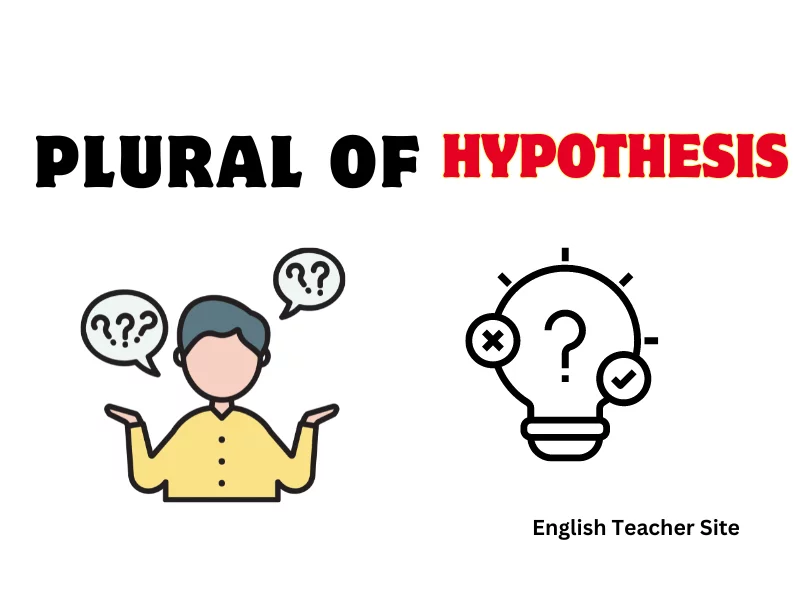
- The word “hypotheses” is the plural form of “hypothesis.”
- “Hypothesis” and “hypotheses” are used to propose explanations for phenomena, with usage depending on the number.
- The origin of “hypothesis” traces back to Greek, affecting its pluralization in English.
In the most straightforward terms, the plural of “hypothesis” is “hypotheses.” This transformation follows a specific pattern seen in words that end in “-is,” with the “-is” changing to “-es” to form the plural. Understanding the correct use of the singular and plural forms is fundamental for both written and spoken English, especially within academic and scientific contexts where the word is frequently employed.
Table of Contents
What’s the Plural of “Hypothesis”?
Singular to Plural Transformation
The transformation from singular to plural for the word “hypothesis” involves altering the ending of the word:
- Change the “is” to “es”
- This results in the plural form “hypotheses”
Pronunciation
The plural form is pronounced as “hī-ˈpä-thə-ˌsēz.” It’s essential to note that the difference is not just in spelling but also in pronunciation.
Usage of Hypothesis and Hypotheses
Here is a simple breakdown of when to use each form:
Examples in Sentences
- Singular : The scientist tested the hypothesis to see if it was valid.
- Plural : After many experiments, all the hypotheses were evaluated for accuracy.
What’s the Singular of Hypothesis?
The singular form of hypothesis is “hypothesis.” To assist in understanding, consider the following tables:
Another table illustrating the usage in a sentence:
Here are key points to remember about the term “hypothesis”:
- It is the singular form used when referring to one proposed explanation.
- A hypothesis can later become a theory if it is supported by substantial evidence.
- In the realm of science, it is a statement subject to verification or falsification through research.
Defining the Word “Hypothesis”
The term hypothesis originates from the Greek word meaning base or foundation . It is commonly understood as a starting point for scientific inquiry, a proposed explanation made on the basis of limited evidence as a starting point for further investigation. In its essence, a hypothesis is a tentative assumption designed to test its logical or empirical consequences.
In scientific reasoning, a hypothesis serves as a provisional idea whose merit requires evaluation. It is not just a wild guess, but an informed conjecture that sets the stage for experimentation and observation.
Key Attributes of a Hypothesis:
- Conjectural : A hypothesis is an educated guess about the relationship between two or more variables.
- Testable : It must be possible to prove that the hypothesis is true or false through evidence.
- Predictive : A hypothesis should make predictions that can be verified through testing.
- Falsifiable : To be scientific, a hypothesis must be structured in a way that it can be refuted by evidence.
Hypothesis in Conditional Statements:
For example, in the statement “If molecules are exposed to higher temperatures, then their kinetic energy will increase,” the hypothesis is that higher temperatures affect molecular kinetic energy.
Hypothesis (Singular) Used in Sentences
Examples in Sentences:
- The scientist formulated a hypothesis about the effect of light on plant growth.
- After analyzing the data, she presented her hypothesis concerning the animals’ migration patterns.
- His hypothesis that increased sunlight would enhance energy efficiency remains to be tested.
- In her thesis, the hypothesis revolved around the impact of social media on communication skills.
- It is key for a hypothesis to be clear and concise for it to lead to meaningful scientific investigation.
Regarding the use of “hypothesis” in academic writing, it is important to:
- Identify the key variable : Highlight what the hypothesis is specifically attempting to test or predict.
- State the expected outcome : Clarify the predicted result or effect that the hypothesis addresses.
Tips for crafting a hypothesis :
- Keep it simple and testable.
- Ensure it is backed by existing literature and theories when applicable.
- Tailor it to be specific , addressing a particular phenomenon or set of data.
- A hypothesis must be falsifiable ; that is, it must be phrased in a way that makes it possible to reject if it is not true.
- Avoid complex jargon when constructing a hypothesis; clarity ensures that others can understand and test it.
- Remember, a hypothesis is not a question, but rather a statement that reflects what the researcher believes to be true.
Hypotheses (Plural) Used in Sentences
In the realm of research, it’s common to encounter:
Example Sentences:
- The scientists reviewed several competing hypotheses before commencing their experiment.
- Their hypotheses centered on the potential effects of climate change on marine biodiversity.
- During the symposium, the researcher explained her methods for testing the various hypotheses .
Using “hypotheses” precisely:
- Clarity : Each of the hypotheses represented a possible explanation for the phenomenon observed.
- Context : In scientific discussions, it’s paramount to present hypotheses in a structured manner.
- Comparison : The study contrasted traditional hypotheses with innovative conjectures emerging in the field.
In day-to-day language or teaching scenarios, one might encounter scenarios such as:
- The teacher asked the students to write down their own hypotheses about the outcome of the chemical reaction.
- The book included several interesting hypotheses about the origins of language.
Origin of the Word “Hypothesis”
Ancient Greek is the initial source of the word “hypothesis.” Specifically, it derives from two Greek words: “ὑπό” meaning ‘under,’ and “θέσις” meaning ‘a placing’ or ‘proposition.’ The combination of these elements resulted in “ὑπόθεσις” (hypothesis), signifying ‘a placing under’ or ‘foundation’.
Transitioning into Late Latin , the term “ hypothesis ” maintained its original Greek meaning. By the time it reached the Middle French , as “hypothese,” it was already well-incorporated into the lexicon of scientific and philosophical discourse.
In English, “hypothesis” retains the essence of its Greek origins: a proposed explanation for a phenomenon, a foundation for further investigation, or a premise to be tested.
Key Developments :
- Integral to scientific method
- Used academically to propose theories
To construct the plural form of “hypothesis,” English follows a standard pattern seen with words ending in ‘-is.’
- Singular: hypothesis
- Plural: hypotheses
Usage in English implies not just a simple carrying over of a term, but an adaptation of the concept it represents — underpinning the advancement of knowledge, it supports theoretical frameworks and empirical research.
My name is Khamis Maiouf. I am the creator of the English Teacher Site, dedicated to providing valuable resources and insights for students around the world. With a passion for education and a commitment to helping students enhance their skills, I aim to make English teaching more effective and enjoyable for both educators and students.
Similar Posts
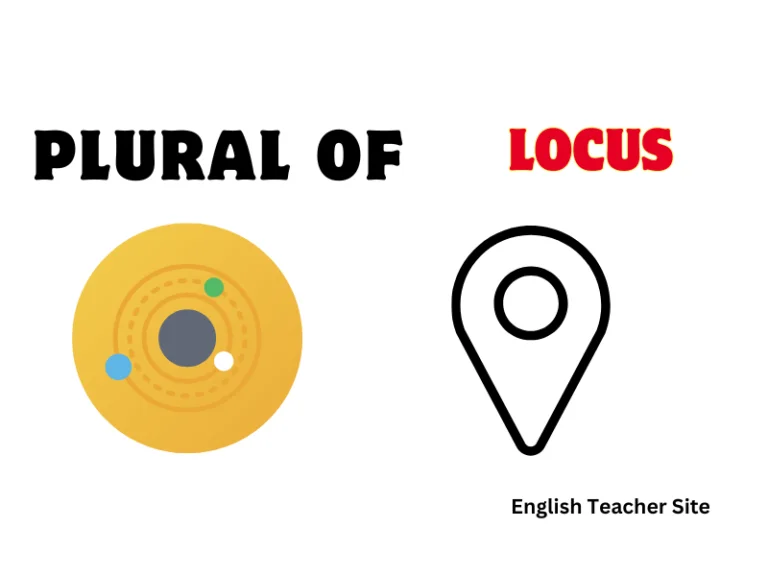
What’s the Plural of Locus: Understanding Grammatical Number in Biology
The plural form of “locus” is “loci” (pronounced ‘loh-sigh’ or ‘loh-kee’). This transformation from singular to plural is common for words that have been adopted from Latin into English. Knowing both forms of the word allows for clearer communication, especially in academic and professional contexts where precision is paramount. Exploring the origin of “locus” further…

What’s the Plural of Concerto: Understanding Musical Terms
The pluralization of Italian-derived nouns in English often follows the original language’s rule, leading to two acceptable plural forms. The acceptable plural forms of “concerto” are “concertos” and “concerti”. The former follows the regular English convention of adding an “s” or “es” to create plurals, while the latter adheres to the Italian grammar rules. Both…
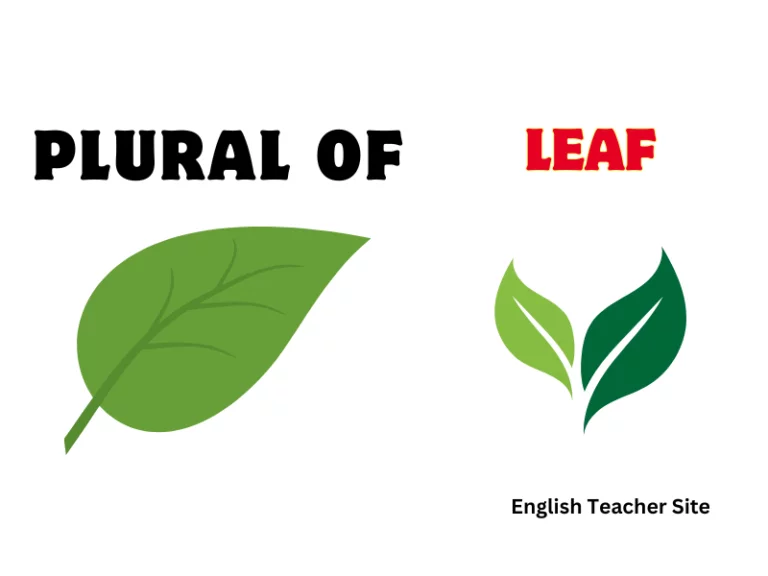
What’s the Plural of Leaf? Understanding Regular and Irregular Plurals
Observing a leaf’s journey through the seasons offers an excellent opportunity to explore its plural form. Each leaf contributes to the lush tapestry of foliage before often being collectively referred to in the autumn months when they become a subject of focus as they change color and fall from their branches. The transformation of “leaf”…
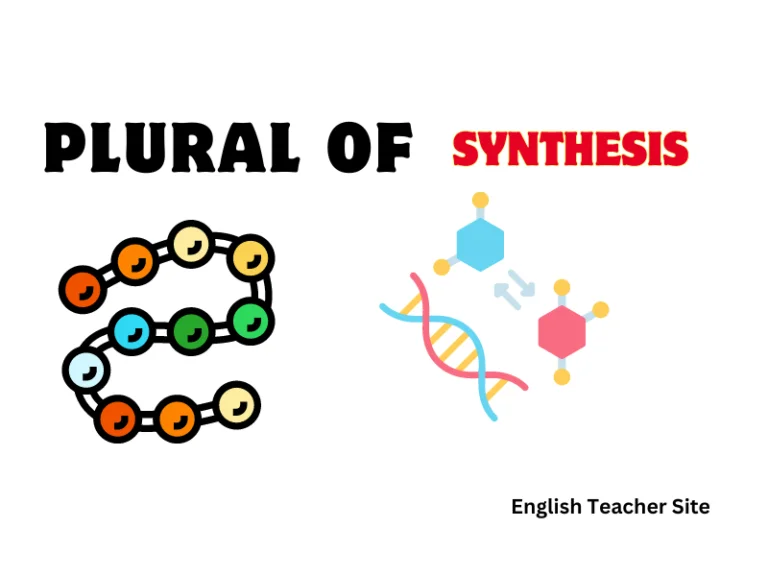
What’s the Plural of Synthesis: Understanding Singular and Plural Forms in English
It’s fascinating to observe how certain nouns transform from singular to plural. The word “synthesis” is an intriguing case. It originates from the Greek “synthesis,” which means “to put together,” reflecting the action of combining different elements to create a cohesive whole. In the world of chemistry, synthesis refers to the process of creating complex…
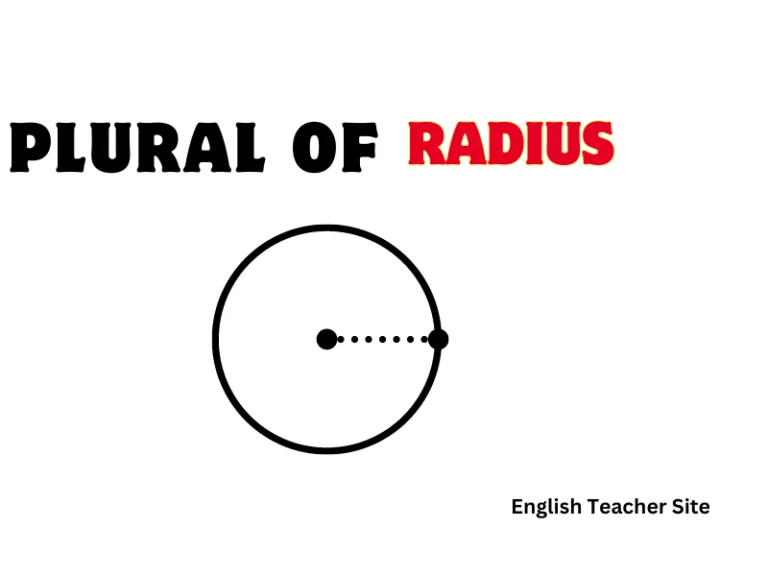
What’s the Plural of Radius: Understanding Geometric Terms
The plural form of “radius” can be either “radii,” following the original Latin pluralization, or “radiuses,” adapting to the standard English method of adding an -es to form plurals. Interestingly, though both forms are correct, “radii” is often used in mathematical contexts, while “radiuses” may be found in more general language. This dual option in…
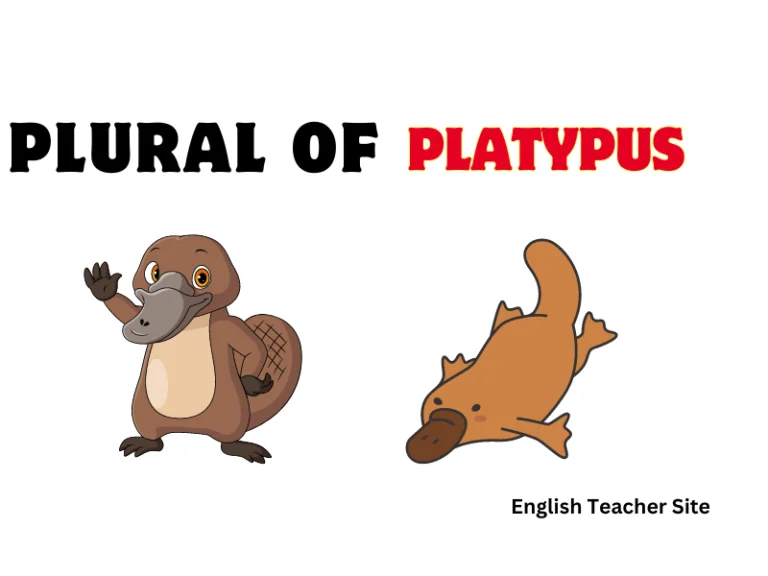
What’s the Plural of Platypus: Understanding English Nomenclature
Despite a common misconception, “platypi” is not the correct plural form. This arises from a mistaken application of Latin rules to a word of Greek origin. In fact, using Greek linguistic rules, the term would be “platypodes,” which is correct but infrequently used. The use of “platypuses” remains the standard, particularly in scientific and common…
Leave a Reply Cancel reply
You must be logged in to post a comment.

IMAGES
COMMENTS
The plural of "hypothesis" is "hypotheses." Scientists base scientific hypotheses on previous observations that cannot be explained with the available scientific theories. Experimenters may test and reject several hypotheses before solving a problem. The noun "hypothesis" has a Greek root, which is the derivation of the plural "hypotheses."
Oct 3, 2024 · The plural of “hypothesis” is hypotheses, pronounced [hahy-poth-uh-seez]. “Hypothesis” is a Greek-derived irregular plural noun that follows Greek pluralization rules. Instead of following the common pluralization rules of English, where you simply add “ -s ” or “ -es ” to the end of the word, Greek-derived words ending in ...
HYPOTHESIS definition: 1. an idea or explanation for something that is based on known facts but has not yet been proved…. Learn more.
Nov 19, 2022 · Lots of people confuse the plural of hypothesis, and it’s not tough to see why: hypothesis is an irregular plural noun form that omits the -s/-es of regular plural nouns. Apart from this, the way hypothesis modifies from singular to plural effectively changes the spelling and pronunciation of the word by substituting the -sis as a singular to ...
HYPOTHESES meaning: 1. plural of hypothesis 2. plural of hypothesis. Learn more.
The plural of hypothesis is hypotheses. Find more words at wordhippo.com!
Oct 24, 2020 · What Is More Than One Hypothesis Called? The plural form of the hypothesis is hypotheses. This is the only way in the English language to make hypothesis plural. Because of the Greek origin, the rule of making a noun that ends in “is” to change it to “es.” Synonyms . Assumption – Something taken for granted
The plural form of hypothesis; more than one (kind of) hypothesis. I have several hypotheses about why attendance has gone down over the last six months.
Jan 19, 2024 · What’s the Plural of “Hypothesis”? Singular to Plural Transformation. The transformation from singular to plural for the word “hypothesis” involves altering the ending of the word: Change the “is” to “es” This results in the plural form “hypotheses” Pronunciation. The plural form is pronounced as “hī-ˈpä-thə-ˌsēz.”
Jan 11, 2024 · “Hypothesis” is often a word that sends shivers down the spines of students and makes professors’ eyes light up. Maybe because it has a fancy Greek root (“hypo” = under, “thesis” = placing). And the plural is not as straightforward as adding an “s” at the end. No, no, no.